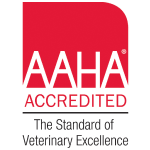This week is Animal Health Week. And this year’s focus is one that’s close to our hearts: the interconnectedness of human health, animal health, and planet health for a “One Health” mentality. As we continue to feel the effects of COVID-19, it’s easy to understand that this relationship is more relevant than ever. The reality is there are many viruses and bacterial infections that can spread to pets and people. And of course, there are those that can spread from pet to pet.
While it’s frightening to think that our pets could unknowingly be carrying a disease we could contract, it’s important to remember many diseases can easily be prevented.
Zoonotic Diseases
Zoonotic diseases, or “zoonoses” are infections or diseases that can be spread from animals to people. While this term includes farm animals and wildlife, pets can also be carriers of zoonotic diseases.
Here are the most common zoonoses that plague pets and domesticated animals:
Lyme disease
Lyme disease is spread by infected ticks. However, you cannot get Lyme disease directly from your pet. But people can contract Lyme disease from a tick that has fallen off their dog or cat.
Rabies
While rabies may seem like a disease that only affected people and animals of the past, it is still circulating in the U.S. today. Only 2 cases on average are people in people every year in the U.S. However, the CDC reports nearly 5,000 cases among animals.
West Nile virus infection
Dogs and cats are highly unlikely to get the West Nile virus (WNV), but this disease can wreak havoc on people and horses. In fact, nearly 97% of non-human cases of WVN are horse infections. Birds can also carry the disease. Spread by mosquitoes, WNV has been reported in all 48 continental states.
Leptospirosis
Leptospirosis, or “lepto” for short, can be contracted by animals and humans. Less severe cases of lepto often resemble the flu. Some pets and people may not even show symptoms at all. However, without a diagnosis and treatment, severe cases of lepto can cause severe kidney and liver damage, trouble breathing, and meningitis.
This bacterial-caused disease is most commonly seen in dogs that love the water. Why? Lepto is often spread through the urine or saliva of infected animals. Once it hits a water source, it can be easy for a dog to accidentally lap it up or ingest some while swimming. Pets can even contract lepto by sniffing soil that has been exposed to the bacteria.
Ringworm
You may have been warned against splashing in puddles as a kid because the water source could contain ringworm. Well, dogs and cats can both carry this fungal disease. It is also highly contagious, and you can contract it from your pet–although you must have a minor cut, scrape, or another opening in the skin to catch it.
Pets can catch ringworm from sharing food or water bowls with an infected animal.
Hookworms and Tapeworms
There are few parasites as disgusting as intestinal worms. Sadly, both tapeworms and hookworms remain a common problem for domesticated pets. Tapeworms spread through infected fleas while hookworms are most often spread through direct exposure. People can contract both forms.
Prevention and Safety for Zoonotic Diseases
The easiest way to prevent your pet from picking up a zoonotic disease that could be brought into your home is by keeping them on their preventative medications. For example, your pet’s heartworm medication will also kill hookworms and tapeworms.
Don’t skip your pet’s annual exam. Without the rabies vaccine and a thorough physical exam, your pet’s life could be in danger.
Washing your hands after petting your dog or cat (or someone else’s pet) can prevent the spread of disease. Giving your pet’s food and water bowl a quick wash daily can also cut down on bacteria and potential viruses. If you keep an outdoor water bowl, we highly recommend that you clean it often.
Additionally, always keep your dog on a leash and discourage them from drinking from unknown water sources. And as the weather cools, remove any leaf litter or stick piles from your yard–these can look quite inviting to small mammals that could be carrying lepto or another disease.
Have a Happy, Healthy, Animal Health Week
If your pet is due for a check-up, please take the time to schedule one today. Your pet’s health is connected to your own in so many ways. Don’t risk letting them go undiagnosed or unprotected from the many diseases that are out there.
Image credit: Pexels



